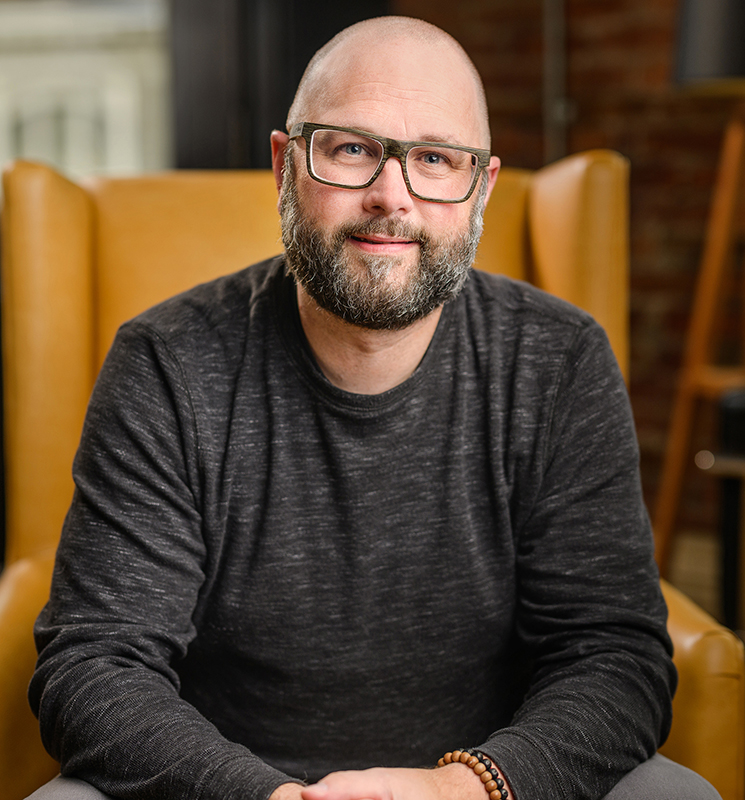Michael Bray
Education/Training
- Northern Michigan University, Bachelor of Science, December, 1999, Psychology
- Wayne State University, Master of Arts, May, 2004, Developmental Psychology
- Wayne State University, Education Specialist (Ed.S.), August, 2016, Instructional Technology & Design
Biography
Michel is the Associate Director for Training at the Michigan Developmental Disabilities Institute (MI-DDI) at Wayne State University. He is an instructional designer, researcher, and data analyst that has worked in the developmental disability field since 2003. Mr. Bray's primary area of interest lies in the design and implementation of inclusive, accessible learning environments that enable diverse adult learners to develop new skills and knowledge. His approach to instruction and design is rooted in constructivist theory, taking into consideration the importance of the lived experiences that learners bring to the learning environment. This approach utilizes Universal Design for Learning (UDL) to enhance access to courses and training. Mr. Bray has also been the MI-LEND Training Director since 2017. Michigan Leadership Education in Neurodevelopmental and Related Disabilities (MI-LEND) is an interdisciplinary leadership training program, funded under the Autism Collaboration, Accountability, Research, Education, and Support (CARES) Act, and administered by the Health Resources and Services Administration's (HRSA) Maternal and Child Health Bureau (MCHB). The MI-LEND program trains emerging leaders with the goal of improving the health of infants, children, and adolescents with or at risk for neurodevelopmental disabilities and other related health care needs. MI-LEND is a collaborative effort of 6 Michigan universities and Michigan’s Title V Program (The Michigan Family Center).
Research
Supporting Students with Disabilities in Higher Education: Increasing Understanding, Awareness, and Inclusion on Campus. This study includes data from a needs assessment of the experiences of students with disabilities at Wayne State University. The effort seeks to provide a forum for students to share their experiences in navigating higher education. Using an anonymous online survey, this study was able to reach out to many disabled students, including those that have fully disclosed their disability, those who have partially disclosed, and those that have chosen not to disclose. In the initial analyses, two types of data collection were used: Quantitative analysis to examine factors associated with disability disclosure and qualitative analysis of open-ended questions regarding reasons to disclose or not disclose disability. This provided for a much larger sample than is often possible with qualitative interview data, while still allowing for the opportunity for participants to explain in their own words their disclosure decisions and dilemmas. In doing so, they had anonymity from the research team housed within the same university.
Increasing Accessible Transportation for Individuals with Intellectual/Developmental Disabilities through Autonomous Vehicles. The primary aim of the Autonomous Vehicle project was to evaluate the potential impact of the adoption and use of autonomous, self-driving vehicles by individuals with Intellectual and Developmental Disabilities (I/DD) and their families. The potential impact of this emerging technology on the disability community is largely unknown at this time. The possibility for positive outcomes (e.g. increased mobility, independence, and inclusion) appears to be high. However, there are considerations that need to be addressed to mitigate the potential for harmful or exclusionary consequences (e.g. legal impact, financial exclusion, accessibility of the technology by users with disabilities). Statewide focus groups and a Delphi Panel were used to assess impact and identify the top priorities to be addressed as put forth by all stakeholders. A White Paper outlining recommendations for future policy and development work was written and disseminated. Project outcomes and White paper are available online at https://ddi.wayne.edu/av.
Professional Memberships & Honors
- 2017-2019: Interdisciplinary Technical Assistance Center (ITAC) on Autism and Developmental Disabilities Project Advisory Committee (2-year term)
- 2012-2015: Wayne County Turn Around Project Board
- 2011-2015: Frontline Initiative Editorial Board
- 2008-2010: Association for Psychological Science
- 2005-2008: American Association on Intellectual and Developmental Disabilities
- 2004-2006: American Psychological Society
- 2003-2015: National Alliance of Direct Support Professionals, State Contact
